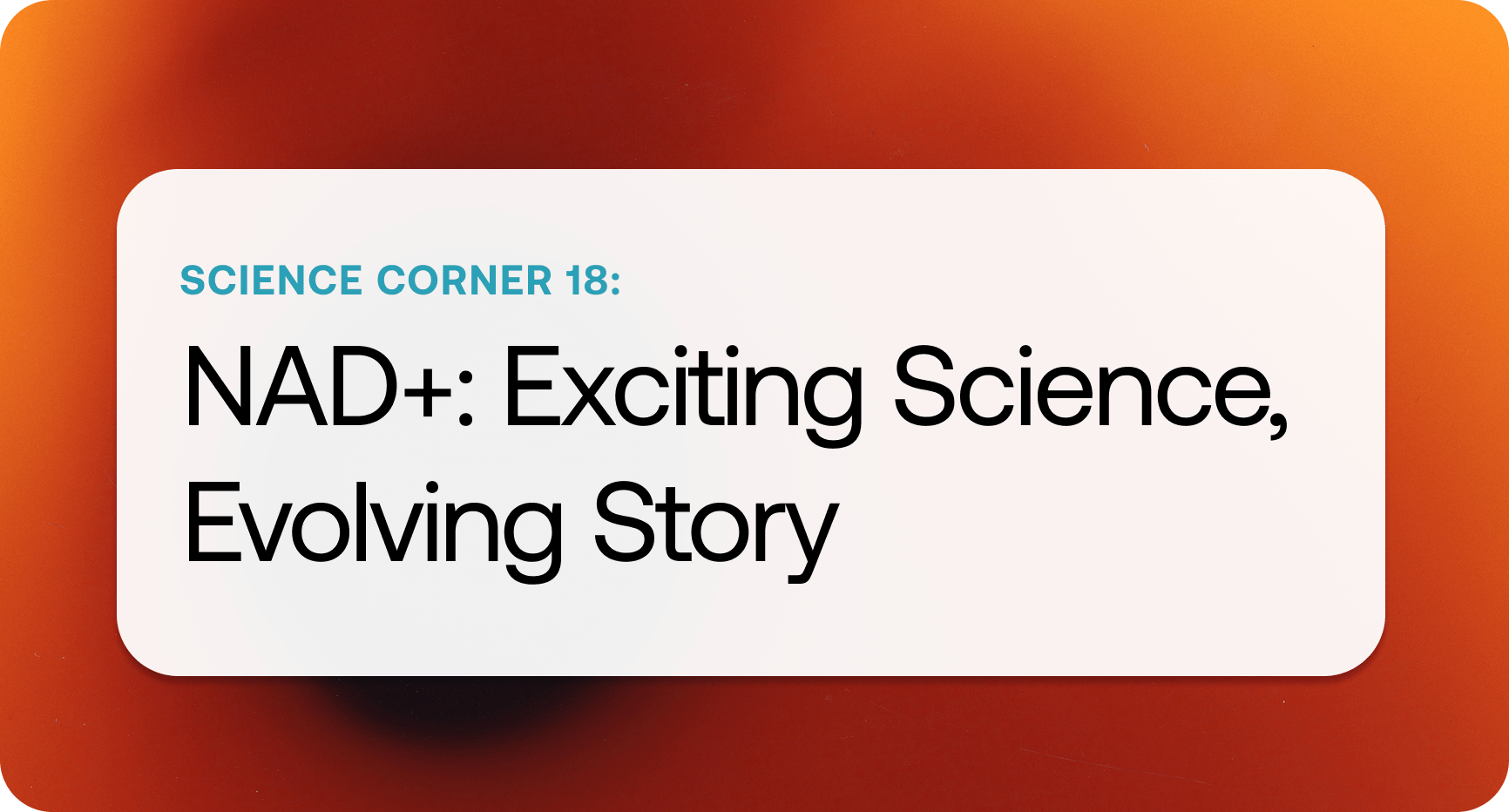Science Corner 18 | NAD+: Exciting Science, Evolving Story

NAD+ has quickly become one of the most talked-about molecules in the world of supplements and longevity. It is also one of the most popular supplements among user stacks on SuppCo.
Once a topic reserved for molecular biology textbooks and aging research labs, it is now front and center in wellness podcasts, social media protocols, and celebrity IV clinics.
Influencers like Joe Rogan and celebrities like Jennifer Aniston have touted its benefits for energy, recovery, and healthy aging. Online interest reflects that surge in visibility, global Google searches for “NAD” rose dramatically between 2023 and 2024, and are expected to climb another 10% this year; furthermore, analysts estimate the global NAD+ supplement market was valued at around $1.2 billion in 2024.
Few molecules have sparked as much curiosity in the longevity world as NAD+. Over the last several years, it has become a go-to ingredient in energy and anti-aging supplements, marketed as a way to enhance cellular repair, improve focus, and even slow biological aging. It is a compelling story, one rooted in real biology, but as with many exciting frontiers, the science is still evolving.
As interest soars and products flood the market, one important question remains surrounding NAD+: does it work?
NAD+ (short for nicotinamide adenine dinucleotide) is essential for life. It helps turn food into energy, supports DNA repair, and powers enzymes involved in stress response and metabolism. But here is the part that gets people excited: NAD+ levels naturally decline with age, and that decline has been linked to cellular dysfunction and age-related diseases.
The logical next question is: if we restore NAD+ levels, can we slow aging or improve how we feel and function? That possibility has driven intense interest from both researchers and supplement brands. In animals, the results have been promising. In humans, we are still piecing together the answer.
One of the biggest challenges is bioavailability. Taking NAD+ itself in pill form does not work particularly well, because it has low bioavailability.
Simply put, oral NAD+ is unstable and poorly absorbed in the gut.
This is why most NAD+ supplements on the market actually contain precursors, compounds like nicotinamide riboside (NR) and nicotinamide mononucleotide (NMN). These molecules are more stable, and your body can convert them into NAD+ once absorbed.
The theory is that by supplying the body with more of these building blocks, we can nudge cellular NAD+ levels back up. Small studies show that NMN and NR can indeed raise NAD+ levels in the blood. Some even report improvements in markers of metabolic health, fatigue, or exercise performance. But these findings are still early. Most studies have been short-term, with relatively small sample sizes, and many use surrogate markers rather than hard health outcomes.
That said, the interest is understandable. NAD+ touches so many cellular processes that it makes sense to explore how keeping levels higher might influence aging and vitality. Just because the data is early does not mean the idea lacks merit, it simply means we need to be thoughtful in how we engage with it.
Right now, NAD+ and its precursors sit at a unique intersection: well-grounded in basic biology, promising in theory, but still light on long-term human evidence. It is a space worth watching, and for some, worth cautiously experimenting with. But as with any supplement category riding a wave of hype, it is worth asking whether the marketing is moving faster than the science.
--
Personal note from Jordan
I have always enjoyed exploring the edge of science. I am not afraid to try something before all the data is in, especially when the biology makes sense and the risks are low. But I do get uneasy when hype leaps too far ahead of the evidence. That is when opinions start to solidify in ways that science has not yet earned. NAD+ is a great example. But regardless of the current science on NAD+, one thing is for sure… For a supplement to work, it first has to be accurate.
That is exactly why we decided to take a closer look at NAD+ supplements themselves. As part of our next SuppCo tested series, we ran our own tests, and the results were eye-opening. Some products lived up to their claims. Others fell far short, including a few that might surprise you.
We will be sharing the full report next week. Stay tuned.
